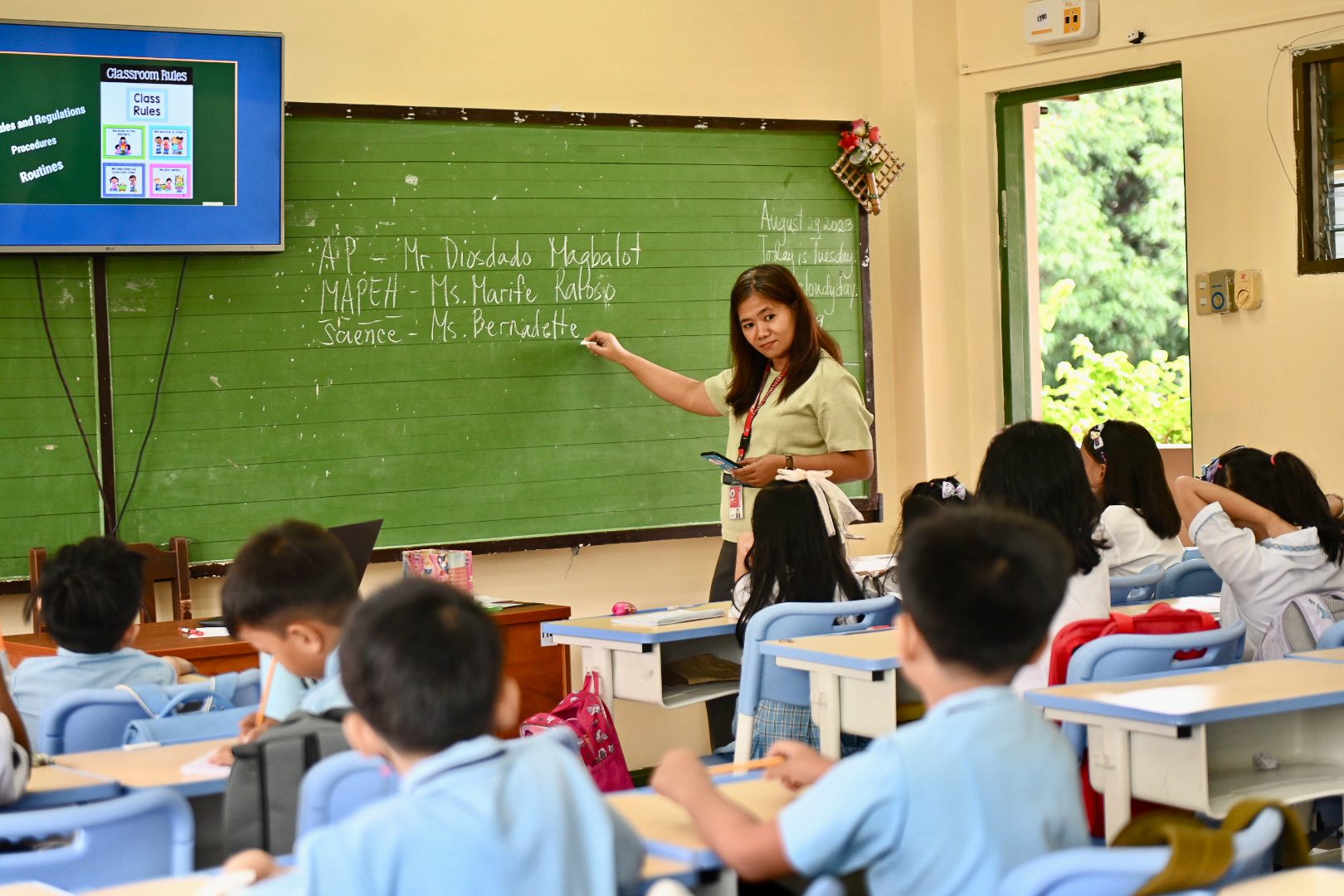SUMMARY
This is AI generated summarization, which may have errors. For context, always refer to the full article.

MANILA, Philippines – Students with unpaid tuition and other school fees should now be allowed to take their scheduled periodic and final exams without requiring a permit.
Republic Act 11984 or the No Permit, No Exam Prohibition Act will cover “disadvantaged students” of all public and private basic institutions from K to 12, higher education institutions, and technical vocational institutions. President Ferdinand Marcos Jr. signed the law on March 11, Malacañang said in a statement on Saturday, March 16.
“All public and private educational institutions covered by this Act are hereby mandated to accommodate and allow Disadvantaged Students unable to pay tuition and other fees to take the periodic and final examinations without requiring a permit,” the law read. “Provided, however, that in the case of K to 12 students, the mandate shall be for the entire school year.”
A social welfare and development officer of the municipality, city, or province, or the regional office of the Department of Social Welfare and Development (DSWD) must issue a “necessary certificate on the disadvantaged status of the student,” which may be due to calamities, emergencies, force majeure, or other reasons provided in the implementing rules and regulations.
Schools may choose to forego this certification method and voluntarily let the disadvantaged student with outstanding school fees take their exams or receive their relevant records and credentials.
Although students with outstanding fees can’t be barred from taking their exams, educational institutions still retain the right and power to require students to submit a promissory note, withhold their records and credentials, or resort to other legal and administrative remedies for them to collect the unpaid fees.
The DSWD will release the implementing rules and regulations to define the term “disadvantaged student” as well as list the criteria, requirements, and effectivity of the certification mentioned in the law.
Public and private educational institutions that violate the “No Permit, No Exam Prohibition Act” will face administrative sanctions from either the Department of Education, Commission on Higher Education, or Technical Education and Skills Development Authority.
The Senate passed the “No Permit, No Exam Prohibition” bill in March 2023, and the House approved its version in May of the same year.
Private school organizations have lobbied against the measure, warning that it may force some of their members to shut down as it risked their sustainable operations.
In an open letter in July 2023, the Catholic Educational Association of the Philippines; Philippine Association of Colleges and Universities; Philippine Association of Private Schools, Colleges, and Universities; Association of Christian Schools, Colleges, and Universities; and Unified Technical Vocational Education and Training of the Philippines, Incorporated urged the Senate to reconsider the measure which, they said will affect schools’ “steady cash flow because the incentive to pay on time is removed, and parents and students will have the option to delay payment.” – Rappler.com
Add a comment
How does this make you feel?
There are no comments yet. Add your comment to start the conversation.